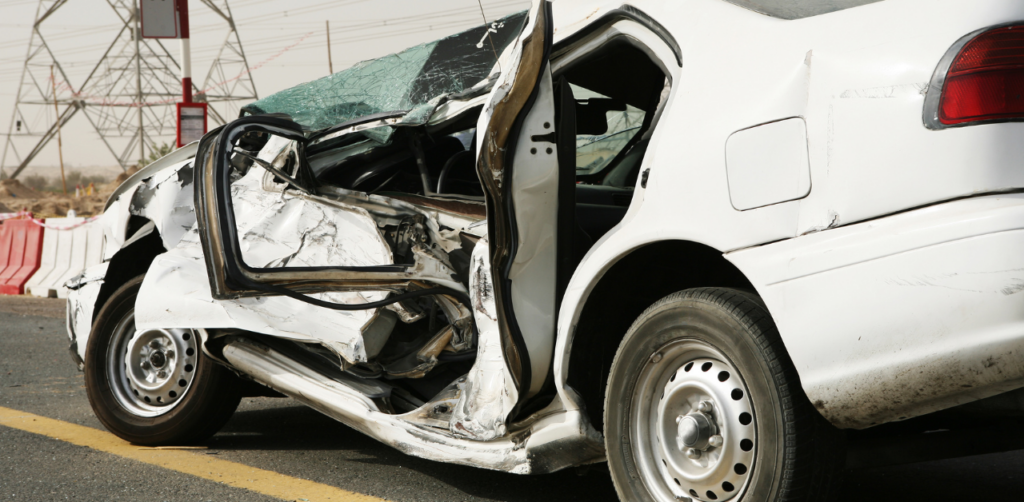
What to Do at the Scene of a Car Accident in Las Vegas?
If you’re involved in a car accident in Las Vegas, taking the right steps at the scene can help ensure everyone’s safety, comply with the law, and facilitate the claims process later. Here’s a comprehensive guide on what to do:
- Stay on the scene. Don’t leave the scene, as this can hurt your case. Check for injuries and call 911 if needed. See a physician if you have injuries. This is essential for your case.
- Call the police. Calling the cops is required if anyone is killed or injured. When filing a claim, a police report can be useful. However, minor crashes do not require a police presence.
- Move to a safe area. If vehicles are blocking traffic, move them if possible. Get the vehicles to a safe area nearby.
- Take photos. Photos act as evidence and are extremely useful. Take shots of injuries and anything else related to the case, like open alcohol containers or malfunctioning traffic signals.
- Exchange information. Share and give the other driver your information, such as your name, contact info, driver’s license number, license plate numbers, and insurance information.
- Report the crash. If anyone is injured or there is damage over $750, the accident must be reported to the Department of Motor Vehicles within 10 days.
- Notify insurance. Check your policy and make sure you report the accident to insurance promptly. There’s no need to give details. Simply tell them where and when an accident happened and where it occurred.
- Contact a car accident attorney. It’s not required, but it’s best to talk to an auto accident attorney. This is especially useful if you have been injured. Meet with a skilled attorney to learn all your legal options.
Do You Have to Call the Police Following an Accident?
Calling the police after an accident may vary depending on different factors, including the accident’s severity, jurisdiction, and specific circumstances surrounding the incident. Here are some general guidelines:
- Severe Accidents with Injuries: If the accident results in injuries or fatalities, you should call the police immediately. Police officers can provide or call for emergency medical services, secure the accident scene, and file a report.
- Significant Property Damage: If there’s substantial property damage, it’s advisable to call the police. A police report can be crucial for insurance claims and determining fault.
- Legal Requirement in Some Jurisdictions: Some states or local jurisdictions require you to report an accident to the police under certain conditions, such as when damages exceed a specified monetary amount or if there are injuries. Failing to report in these instances can lead to penalties.
- Hit-and-Run or Law Violations: If the other driver leaves the scene without providing contact information, or if you suspect they’re under the influence or have committed a crime, you should call the police. They can investigate and help locate the other driver.
- Disputes Over Fault: If there’s a dispute about who’s at fault, having a police report can provide an objective third-party account of the accident, which can be helpful for insurance and legal purposes.
- Minor Accidents: For minor fender-benders with no injuries and minimal damage, it might not be necessary to call the police. However, exchanging information with the other driver, including names, contact details, insurance information, and license plate numbers, is still essential.
Why Insurance Companies Don’t Always Play Fair
After a car crash, many people believe their insurance carrier—or the other driver’s—will just “do the right thing.” Sadly, that’s not always true. Insurance companies are businesses. Their job is to minimize payouts.
They might:
- Blame you for the accident
- Downplay your injuries
- Use your words against you
- Push for a quick settlement before you know the full cost of recovery
That’s why having legal assistance can make all the difference.

What Is an Average Car Accident Settlement in Nevada?

For 2022, the average settlement for those with physical injuries was between $14,000 and $15,000, while those without accidents received an average of $3,000 to $4,000. The details of your case count and may make your compensation higher or lower.
Nevada follows a modified comparative negligence rule, which means that the compensation can be reduced by the percentage of fault the injured party had in the accident. If the injured party is found to be more than 50% at fault, they cannot recover damages.
Keep in mind that legal advice tailored to the specifics of a case is crucial for anyone involved in a car accident seeking compensation. A personal injury lawyer can provide an estimate based on the case details, including the impact of Nevada’s specific laws on the potential settlement.

Jeff Temple
Personal Injury Lawyer
Seek Legal Representation After an Accident in Las Vegas
After experiencing a car accident in Las Vegas, ensuring you take the proper steps is important to protect your health and legal rights. Immediately seek medical treatment to address any injuries, which might include traumatic brain injuries, often not apparent right away. Early medical attention supports your recovery and strengthens your personal injury case by documenting your injuries.
Pursuing personal injury claims can be complex, involving detailed negotiations with insurance companies and litigation. Therefore, consulting Temple Injury Law becomes essential for your case. We can guide you through the legalities, ensuring you receive fair compensation for your injuries and losses. Schedule a consultation for a solid personal injury case to protect your interests and focus on your recovery.


